T: 01822 851370 E: admin@sparse.gov.uk
RSN Voices Serious Concerns Over ‘Fairness’ Of Settlement
Read here...
November Edition of Casebook from the Rural Health and Care Alliance
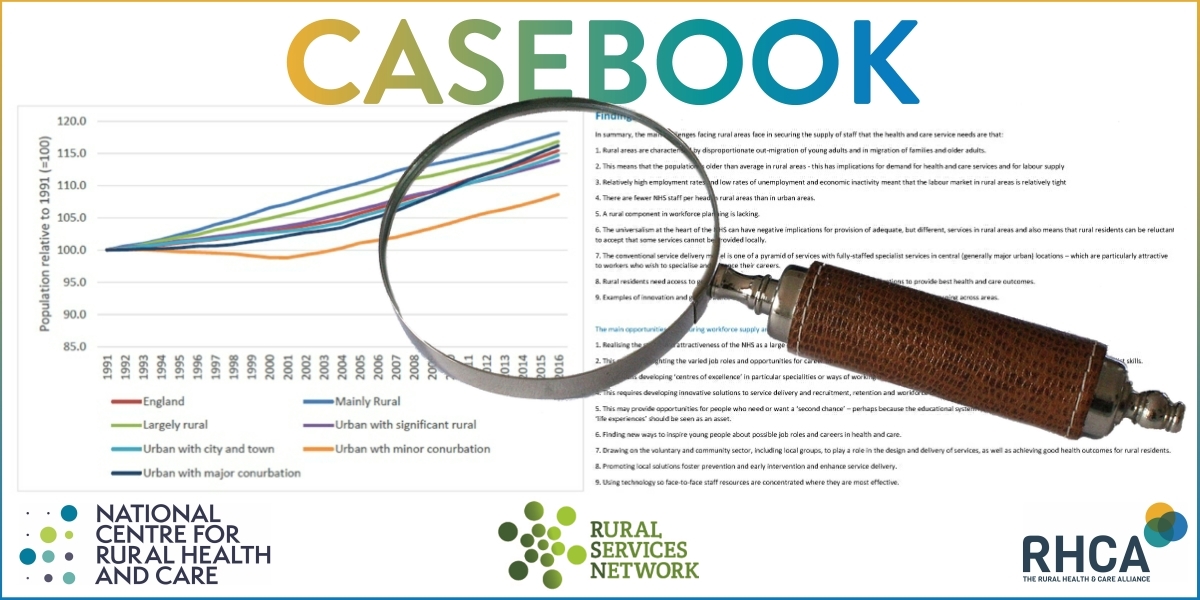 November 2025 Edition
November 2025 Edition
Welcome to this month’s edition of Casebook in which we remind you that there is still time, if you are quick, to sign up for the online Rural Health and Care seminar featuring presentations on: Rural healthcare and tech in Australia and Alaska; Insights into the Social Determinant of Health; and a project highlighting the intrinsic link between housing, employment and health. Also, in this edition we share findings from our latest Rural Lens series examining the 10 Year Health Plan; Indices of Multiple Deprivation and Post 16 Education and Skills White Paper; as well as articles on ICS stability, integrating nature into healthcare and keeping Britain working. Read on!
New RSN Rural Lens Reviews Highlight Policy Impact

The Rural Services Network has released three new Rural Lens Reviews, providing our members with in-depth analysis of how key Government policies and reports impact rural communities.
Through our Rural Lens series, RSN applies a distinct rural perspective to national policy developments, highlighting where rural needs risk being overlooked and offering practical insights to help shape fairer outcomes. These documents are designed to support local authorities, parish and town councils, and partner organisations in making the rural case to decision-makers.
Our latest series of reviews cover:
- Indices of Deprivation 2025: Examining the implications of updated deprivation data and the new rural report for funding and fair policy assessment.
- Post-16 Education and Skills White Paper: Analysing how reforms to education and training could affect rural learners, employers and providers.
- 10-Year Health Plan: Exploring how proposed NHS reforms, digital delivery, and workforce plans must adapt to meet rural health and care needs.
These reviews are part of RSN’s ongoing commitment to ensure rural proofing in all areas of national policy and support our campaign to ensure Government is Delivering for All.
Read the latest Rural Lens reviews here:
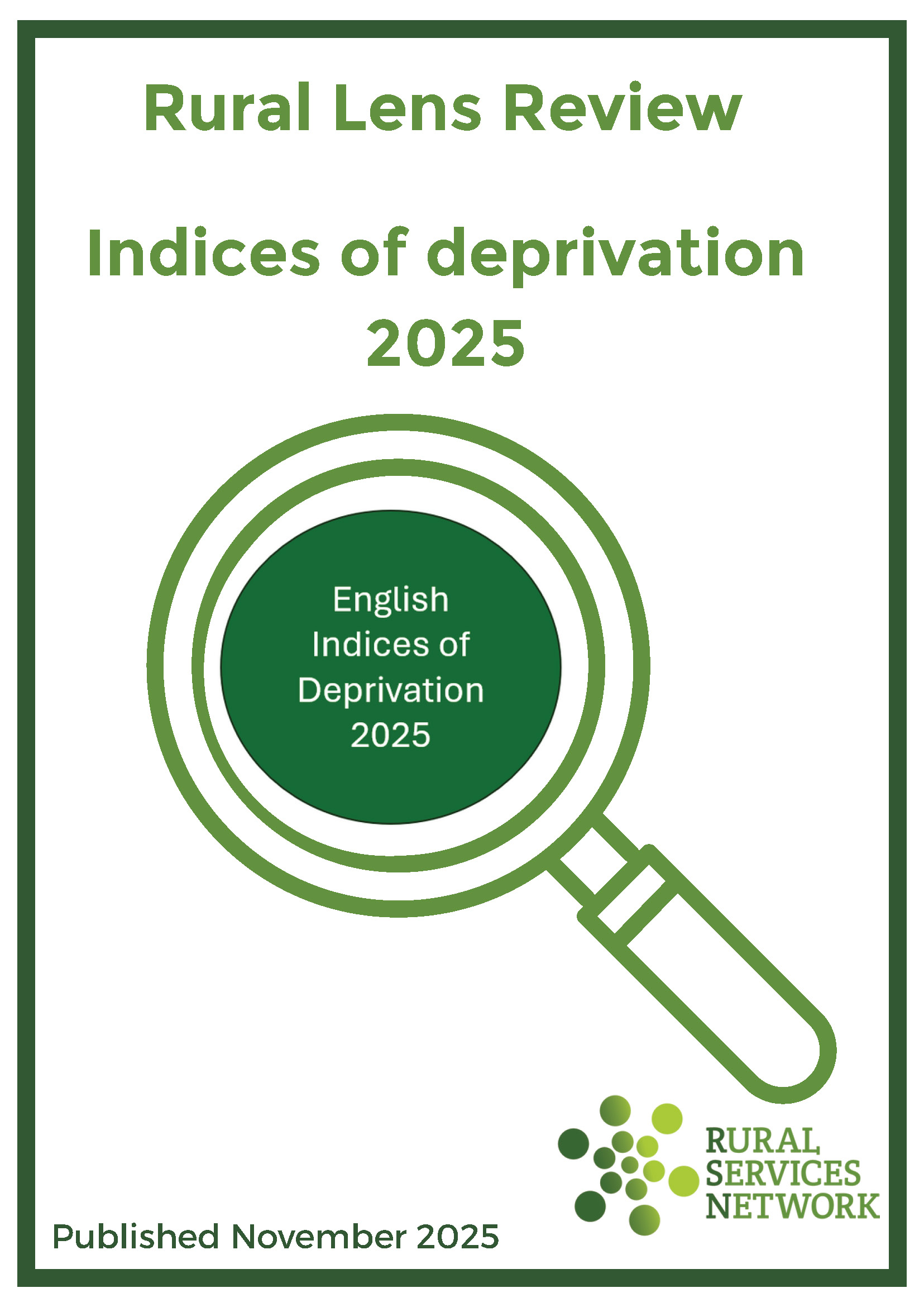 |
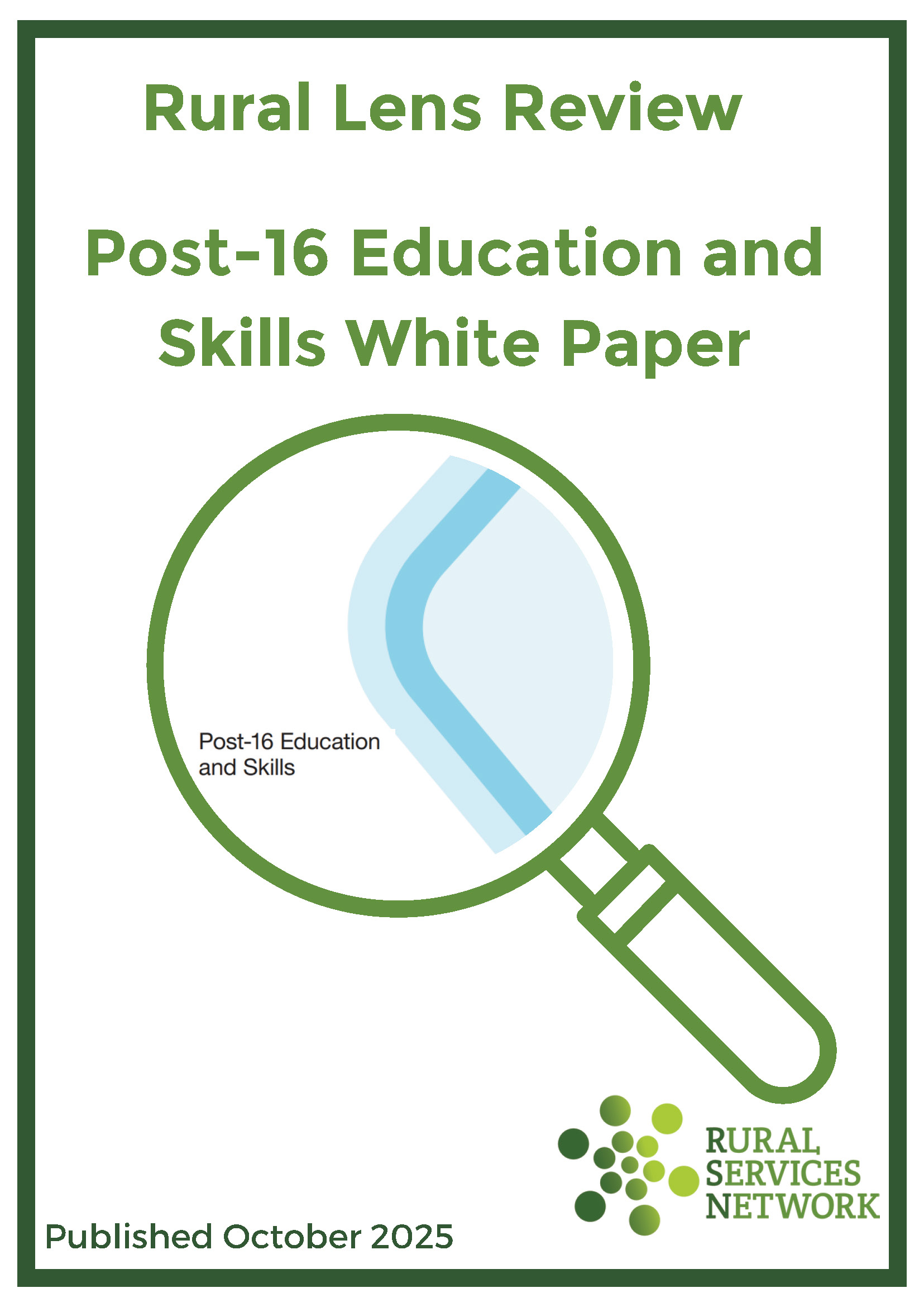 |
 |
Integrated Care Systems Report Calls for Stability to Deliver Change

The NHS Confederation’s State of Integrated Care Systems 2024/25: Delivering Through Change report sets out a candid picture of England’s 42 ICSs under sustained strain. It finds systems are “operating under unprecedented demand, constrained resources and uncertainty about future funding and structure”, warning that the ambition to deliver joined-up, preventative and community-based care is at risk without consistent national support.
Although not a rural-specific report, many of the barriers it highlights are amplified outside cities: workforce shortages, social care fragility, longer travel times, and the need for stronger partnership with local authorities and the voluntary and community sector.
One of the most relevant examples in the report comes from Devon ICS, which is using digital tools to improve access and coordination across a geographically large and diverse system. The review notes how Devon has invested in shared digital infrastructure to connect data between primary, community and acute services, enabling clinicians to access real-time information and helping to manage demand across dispersed populations.
The report highlights this as evidence of how “place-based and digitally enabled collaboration can deliver better outcomes even where geography poses challenges.”
Read more and download the report here
Rural Research Snapshot: Evidence Behind the HeadlinesWhile the State of Integrated Care Systems 2024/25 report is national in scope, its findings resonate strongly with issues long recognised in rural policy and service delivery. RSN’s Delivering for All roadmap emphasises that effective national reform depends on recognising the distinctive needs of rural places, from workforce planning and transport to health and care provision. It calls for a dedicated rural workforce strategy and for all policy to be Rural Proofed, ensuring proposals to reduce health inequalities take account of “the whole range of extra costs of delivering services in rural areas.” The roadmap also highlights how access to good quality jobs, housing and services is fundamental to reducing the wellbeing gap between rural and urban areas. These priorities are supported by new evidence from Rural England CIC’s State of Rural Services 2025 report, which sets out a detailed picture of service access across rural England. It finds that:
Taken together, these findings underline why place-based flexibility, data sharing and digital inclusion are vital to the success of integrated care reforms. They demonstrate that integration will only work if it recognises how geography, distance and demography shape service access, and if the right support is in place for systems serving large and dispersed rural populations. As Delivering for All concludes, meaningful change depends on ensuring that “change reaches every community, including those in rural areas.” |
New Report Urges Change To Keep Britain Working

The Government’s Keep Britain Working Review, led by Sir Charlie Mayfield, warns that ill-health has become one of the biggest drivers of economic inactivity in the UK, costing an estimated £212 billion a year, equivalent to 7 per cent of GDP.
The report calls for a new national approach where employers, employees and government share responsibility for tackling health-related barriers to work.
With over one in five working-age adults now outside the labour market, largely because of long-term sickness or disability, the review argues that the UK is “getting older, living longer – but becoming sicker sooner”.
It recommends a three-part framework to help turn the tide:
- a Healthy Working Lifecycle to promote inclusion, prevention and early intervention;
- a Workplace Health Provision service to replace reliance on fit notes with proactive support; and
- a Workplace Health Intelligence Unit to strengthen evidence, data and incentives for employers.
The review urges ministers to launch a three-year Vanguard Phase to test employer-led solutions, embed better workplace health standards, and re-align incentives through tax, procurement and welfare reform.
Sir Charlie Mayfield said the aim is to create “a new deal” between government, employers and workers, ensuring that good work supports good health and national prosperity.

While Keep Britain Working is not an explicitly rural report, its recommendations touch directly on the challenges faced by rural employers and workforces.
Rural economies are older, more self-employed and dominated by small businesses, many without access to affordable occupational-health support. Health-related inactivity, recruitment pressures and gaps in local care provision all threaten the sustainability of vital rural services.
The Rural Services Network’s Delivering for All roadmap highlights how fair funding, better metrics and place-sensitive policy are essential to unlocking rural prosperity. A “Healthy Working Lifecycle” that works for everyone must recognise these spatial inequalities, including distance from health services, limited transport and digital connectivity, and the higher costs of providing local employment support.
Embedding the principles of Delivering for All would ensure that forthcoming workplace-health reforms are rural-proofed, with pilots and data collection that reflect the realities of dispersed communities and small-employer economies.
| Read the full report here | Learn more about RSN’s Delivering for All campaign here |
Patients To Benefit From Cutting-Edge NHS Care At Home

New digital technologies will enable more NHS patients to receive care from home, under a national rollout announced last week.
Dozens of areas in England are introducing remote-monitoring tools through the NHS App, allowing patients to share updates such as blood pressure, oxygen levels or other symptoms directly with specialists. The initiative aims to make care more personalised, reduce unnecessary hospital visits, and free up around 500,000 appointments annually once fully operational.
The pilots will initially focus on five specialisms – ear, nose and throat (ENT), gastroenterology, respiratory medicine, urology and cardiology – with participating NHS trusts introducing digital pre-appointment questionnaires and self-reporting tools.
The programme also includes a world-first clinical trial led by Sheffield Teaching Hospitals NHS Foundation Trust and the University of Sheffield to remotely support people living with motor neurone disease (MND) through non-invasive ventilation monitoring.
Health and Social Care Secretary Wes Streeting said the rollout would make care “easier, faster and always within reach,” helping patients access support closer to home while reducing pressure on hospitals ahead of winter.
Read the full government press release here
 |
Kerry Booth, Chief Executive of the Rural Services Network, said:
|
Integrating Nature into Healthcare

Churchill Fellow, Harriet Noble, has published thought provoking research on how introducing nature into healthcare environments can profoundly improve patient outcomes and wellbeing. In her report Integrating Nature into Healthcare: Lessons from Khoo Teck Puat Hospital for the NHS, Harriet takes inspiration from her visit to Singapore to provide recommendations for King’s College Hospital and beyond.
Click here to read the full report
Upcoming events
Book onto the upcoming Rural Health and Care Seminar by clicking below:
We’d love to hear from you - share what you’re proud of
If you have something, you would like us to feature in a future edition, please let us know by clicking here to send us an email.
Spread the word
If you know of other organisations that you think would benefit from joining the Rural Health & Care Alliance, please click here to email us and let us know.
RURAL SERVICES NETWORK
Up to date news on Health and Care
The Rural Services Network provides a useful source of themed news content and data. Check out the latest news on Rural Access to Health and Care Services and Vulnerability, where you’ll find articles on a diverse range of rural issues affecting rural communities.
Latest from RSN Member Insights
RSN Member Insights is the place to discover the statistics that define communities within our membership. It is regularly updated with new analyses, and these will be highlighted in the 'What's New' section of the RSN's Weekly Rural Bulletin. The Rural Bulletin also provides a selection of the most rurally topical news items, so do subscribe and encourage your colleagues to subscribe to what is an invaluable weekly periodical.
| The Rural Health & Care Alliance is a membership organisation administered by the Rural Services Network on behalf of the National Centre for Rural Health & Care. Explore the RHCA service below: |
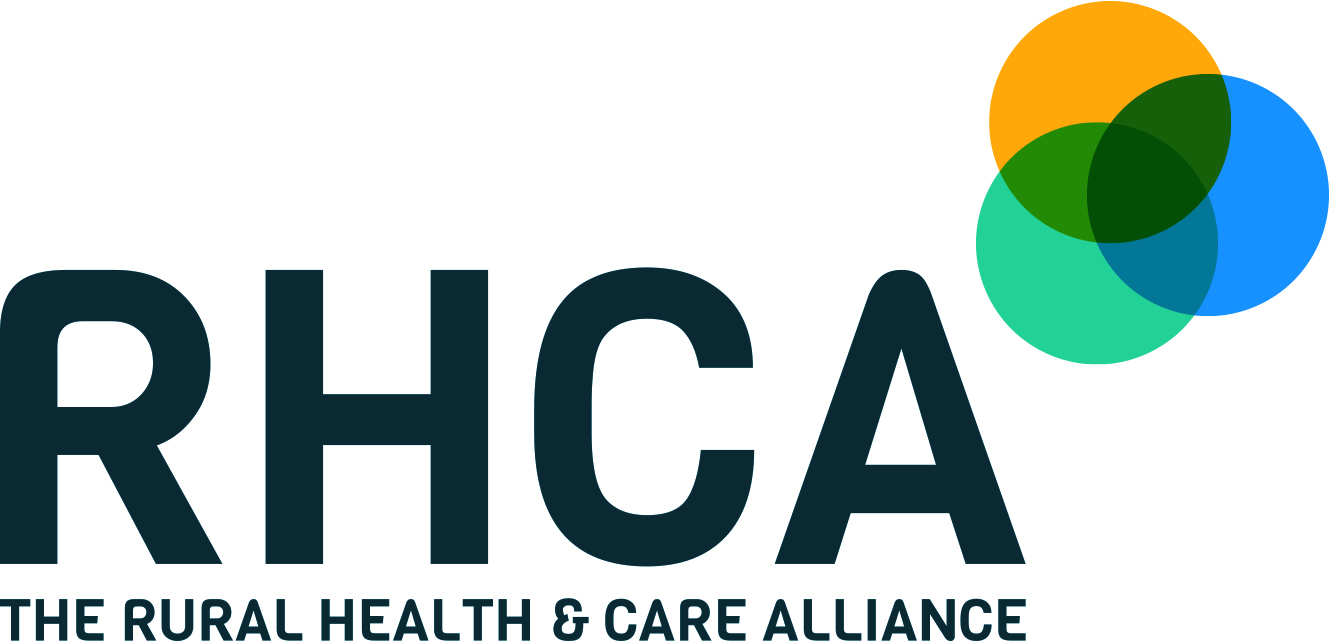 |
 |
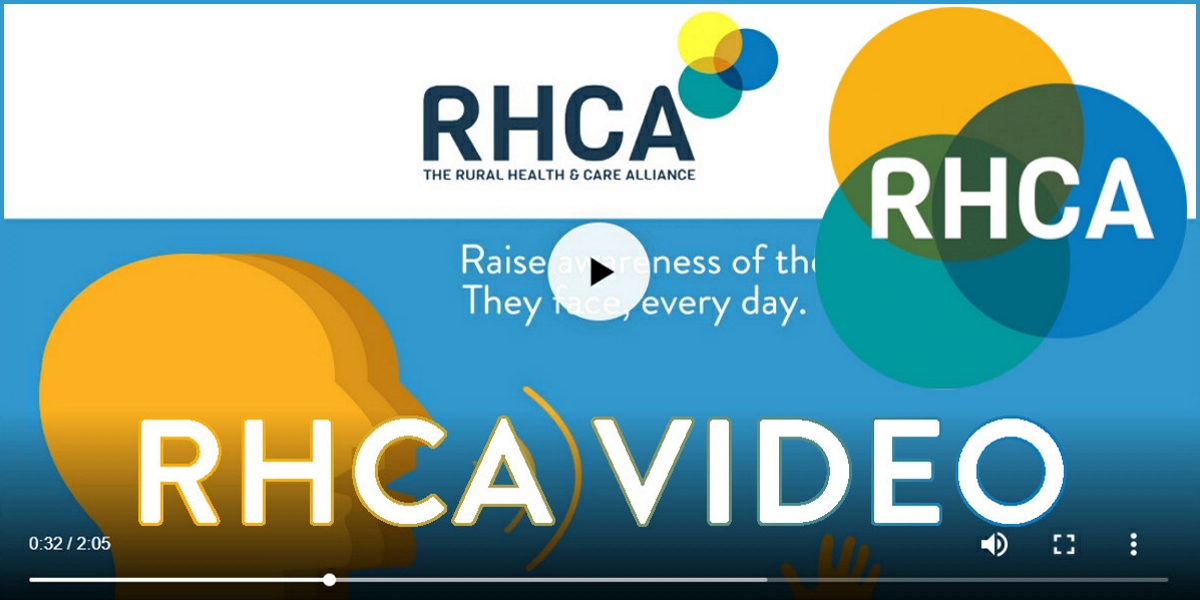 |
 |
 |
 |
 |
 |
 |
 |




